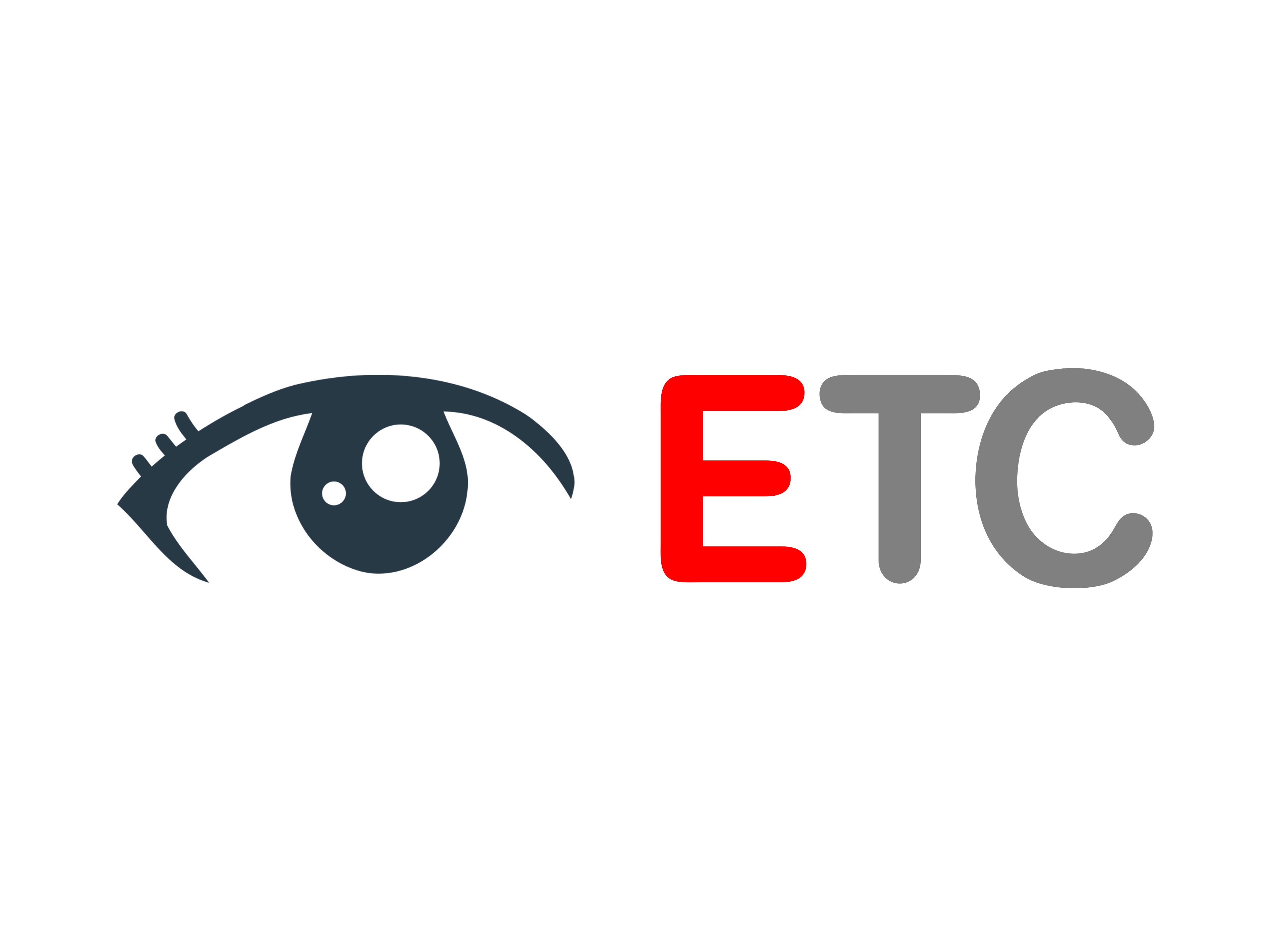Personality Type: Joyful Creative
A strong emphasis on positive emotions, creativity, and joy characterizes the “Joyful Creative” personality type. Individuals with this personality type possess unique strengths and weaknesses that influence how they navigate life and interact with others.
Core Competencies:
FIT Score: 8.1
Emotional Intelligence (EQ)
Moderate to High – Joyful Creatives are often in tune with their own emotions and those of others, although their focus on creativity can sometimes make them less aware of social cues.
Stress Tolerance
Moderate – While they find joy in their creative pursuits, the pressure to be constantly innovative can be stressful at times.
Team Compatibility
High – Their joyful and creative nature often brings a unique and uplifting dynamic to team settings.
Communication Skills
Moderate to High – They are generally good at expressing themselves, though sometimes their creative language can be misunderstood.
Conflict Resolution
Moderate – Joyful Creatives may prefer to avoid conflict but are usually open to collaborative solutions when conflicts do arise.
Motivation
High – The drive to create and express themselves is a significant motivating factor for Joyful Creatives.
Adaptability
High – Their creative nature often makes them open to new ideas and quick to adapt to change.
Empathy
High – The emotional depth often required for creative work usually translates into a high level of empathy for others.
Resilience
Moderate to High – Their joy in what they do helps them bounce back from setbacks, although repeated failures can be disheartening.
Self-Regulation
Moderate – While they are passionate about their creative pursuits, this can sometimes lead to a lack of focus in other areas.
Optimism/Pessimism
High – Their joyful disposition generally makes them optimistic, seeing opportunities where others might see obstacles.
Work-Life Balance
Moderate – The blurred lines between passion and work can make work-life balance a bit challenging.
Ambition
Moderate – While they are driven by their creativity, traditional markers of success may be less important to them.
Interpersonal Skills
High – Their joyful nature often makes them likable and easy to get along with, although they may not always conform to social norms.
Honesty and Integrity: 8/10
Joyful Creatives are generally honest individuals who value authenticity. They are often straightforward about their feelings and thoughts, although they may sometimes embellish stories for the sake of creativity or entertainment.
Life Balance
Strengths:
-
Creativity: Joyful Creatives are highly creative individuals who often excel in artistic and imaginative endeavors. They have a unique ability to generate innovative ideas and approaches to problem-solving.
-
Positive Outlook: They have a natural inclination toward positivity and optimism. Their joyful disposition can be infectious and uplifting to those around them.
-
Adaptability: Joyful Creatives are open to new experiences and flexible thinking. They embrace change and are willing to explore diverse interests.
-
Resilience: They often bounce back quickly from setbacks and view failures as opportunities for growth and learning. This resilience allows them to stay motivated and continue pursuing their passions.
-
Energy and Enthusiasm: They bring high energy and enthusiasm to their pursuits, making them passionate about their creative projects and endeavors.
-
Inspirational: Joyful Creatives can inspire and motivate others with optimism and creativity. They often serve as a source of inspiration for those around them.
Weaknesses:
-
Lack of Focus: Their abundance of creative ideas and interests can sometimes lead to difficulty focusing on a single project or goal. They may need help with prioritization.
-
Impulsivity: Their enthusiasm and desire for novelty may lead to impulsive decision-making, resulting in unintended consequences.
-
Sensitivity to Criticism: Joyful Creatives may be sensitive to criticism, particularly regarding their creative work. Negative feedback can affect their self-esteem and enthusiasm.
-
Difficulty with Routine: They may find routine and repetitive tasks that could be more interesting and challenging to manage, leading to procrastination in such areas.
-
Struggles with Structure: They may need help establishing and adhering to structured timelines or plans, preferring a more spontaneous and flexible approach.
-
Overcommitment: Their eagerness to explore various interests and projects can lead to overcommitment, potentially spreading themselves too thin.
It’s essential to remember that individuals within the Joyful Creative personality type may have varying degrees of these strengths and weaknesses. Recognizing and leveraging their strengths while addressing their weaknesses can lead to a fulfilling and creative life. Finding a balance between their creative pursuits and practical responsibilities is often key to their success and well-being.
Jobs & Action Plan
Job types well-suited for the Joyful Creative:
Creative Arts, Design, Advertising
-
Graphic Designer: Joyful Creatives excel in visual and artistic fields. They can use their creativity to design graphics, logos, and visuals that convey messages effectively.
-
Content Creator: Whether as writers, bloggers, vloggers, or social media influencers, Joyful Creatives can excel in content creation, sharing their ideas, stories, and artistic expressions with a broad audience.
-
Artist or Illustrator: Many Joyful Creatives have a natural talent for visual arts. They can work as professional artists or illustrators, creating unique and inspiring works of art.
-
Creative Director: In roles like creative director or art director, they can lead teams in brainstorming creative ideas and ensuring that artistic projects align with a vision.
-
Event Planner: Planning and organizing events can tap into their joyful and creative spirit. They can create memorable experiences for clients and attendees.
-
Marketing Specialist: Joyful Creatives can bring fresh and innovative ideas to marketing campaigns. They can work on creating engaging advertisements and promotional materials.
-
Product Designer: In product design, they can contribute their creative ideas to develop new products or improve existing ones, enhancing both functionality and aesthetics.
-
Entertainment Industry Professional: Jobs in the entertainment industry, such as actors, musicians, or comedians, can allow Joyful Creatives to express themselves and bring joy to others.
-
Educator or Trainer: Sharing their creativity and knowledge as teachers, trainers, or workshop leaders can be fulfilling for Joyful Creatives.
-
Innovation Consultant: They can use their creative problem-solving skills to help businesses and organizations innovate and develop new strategies.
-
Interior Designer: Joyful Creatives can bring their artistic vision to life by designing interior spaces that are both aesthetically pleasing and functional.
-
Photographer or Videographer: Capturing moments through photography or videography can be an excellent outlet for their creativity.
-
Fashion Designer: In the fashion industry, they can design clothing and accessories that reflect their unique style and creativity.
-
Architect: Architectural design allows them to combine creativity with structural and functional considerations.
-
Creative Writer or Poet: Crafting stories, poems, or novels can be a fulfilling career for those who love words and creativity.
-
Game Designer: Creating interactive and engaging games taps into their creative problem-solving abilities.
These job types allow Joyful Creatives to leverage their creative energy, enthusiasm, and intellectual curiosity to excel in their careers while finding fulfillment in their work.
Incompatible Joyful Creative:
-
Compliance Officer: Strictly adherence to rules and regulations might stifle their creativity.
-
Tax Accountant: Dealing with complex numbers and regulations might not align with their creative spirit.
-
Quality Control Inspector: Repetitive tasks focused on precision may not provide the creative outlet they seek.
-
Actuary: Highly analytical and data-driven work may cater to something other than their creative side.
-
Document Reviewer: Reviewing legal or technical documents might not stimulate their creativity.
-
Financial Analyst: Analyzing financial data in a structured manner may not align with their creative nature.
-
Inventory Control Specialist: Focused on logistics and organization, this role may not offer creative opportunities.
Joyful Creative – Action Plan:
-
Strengths: Embrace your joy, enthusiasm, and creativity.
-
Action Plan:
Explore careers in the arts, design, or creative industries.
Pursue creative endeavors and hobbies that bring you joy.
Collaborate with others on innovative projects.
“Joyful Creative” personality type, an action plan can be designed to nurture their creative talents while ensuring they develop resilience, adaptability, and practical communication skills. Here’s how to structure support for each of the outlined elements:
1. Emotional Intelligence (EI) Quotient
-
Action: Emotional intelligence workshops with a focus on creative expression.
-
Purpose: To enhance their understanding of emotional nuances in creative work and interpersonal relationships.
-
Outcome: Improved emotional depth in creativity and stronger social connections.
2. Stress Response Analysis
-
Action: Creativity-focused stress management techniques, such as art therapy.
-
Purpose: To provide tools for using creative outlets as a healthy stress response mechanism.
-
Outcome: Enhanced well-being and resilience, ensuring stress does not stifle creativity.
3. Adaptability Index
-
Action: Scenario-based adaptability training in creative contexts.
-
Purpose: To foster flexibility in their creative process and adaptability to feedback and changing circumstances.
-
Outcome: More dynamic and versatile creative outputs.
4. Cognitive Styles
-
Action: Exploration of cognitive styles through creative exercises.
-
Purpose: To understand their preferred modes of thinking and processing information for enhancing creative thought.
-
Outcome: A more nuanced approach to creativity and problem-solving.
5. Interpersonal Dynamics
-
Action: Team-building activities within creative and collaborative projects.
-
Purpose: To refine their ability to work effectively in teams, constructively offering and receiving creative input.
-
Outcome: Improved collaborative creativity and team dynamics.
6. Values and Motivations
-
Action: Values alignment workshops focusing on personal and artistic values.
-
Purpose: To ensure their creative endeavors are aligned with their core values and motivations.
-
Outcome: More meaningful and fulfilling creative work.
7. Behavioral Patterns
-
Action: Reflective practices on creative habits, including journaling and peer feedback sessions.
-
Purpose: To identify and cultivate productive, creative habits while addressing counterproductive behaviors.
-
Outcome: Enhanced consistency and productivity in creative pursuits.
8. Communication Preferences
-
Action: Communication skills development, emphasizing expressing creative ideas and constructive criticism.
-
Purpose: To improve their ability to effectively communicate their creative visions and feedback.
-
Outcome: Stronger interpersonal communication and feedback reception.
9. Life Satisfaction and Fulfillment Metrics
-
Action: Regular check-ins on creative satisfaction and personal fulfillment.
-
Purpose: To balance creative work, personal growth, and life satisfaction.
-
Outcome: A well-rounded life where creativity flourishes.
10. Neuroplasticity and Learning Styles
-
Action: Creative learning strategies and neuroplasticity exercises.
-
Purpose: To leverage their natural curiosity and learning style for continuous creative skill development.
-
Outcome: Lifelong learning and creative evolution.
11. Digital Behavior Analysis
-
Action: Analysis of digital habits related to creativity and inspiration.
-
Purpose: To optimize the use of digital tools for creativity, avoiding digital burnout.
-
Outcome: Healthier digital habits that foster creativity.
12. Cross-Cultural Dimensions
-
Action: Exposure to and education on diverse cultural expressions of creativity.
-
Purpose: To broaden their creative horizons and incorporate diverse perspectives into their work.
-
Outcome: A richer, more diverse creative output.
This action plan supports the “Joyful Creative” personality type in maximizing their creative potential while developing essential skills and qualities for personal and professional growth. Each action aims to be supportive, enriching, and tailored to the unique needs of creative individuals, fostering an environment where joy and creativity thrive.
Innovation & Leadership
Innovation:
-
Creative Problem-Solving: Joyful Creatives excel at thinking outside the box and finding creative solutions to complex challenges.
-
Inspiring Creativity: Their enthusiasm and joy can inspire innovative thinking and encourage others to explore new ideas.
-
Embracing Change: They are open to change and often bring a fresh perspective to evolving situations and problems.
-
Experimentation: Joyful Creatives are willing to take risks and try new approaches, fostering an environment of experimentation.
-
Artistic Expression: Their connection to aesthetic and intellectual emotions can lead to unique and artistic innovations.
Leadership:
-
Visionary Leadership: They often lead with a clear vision, inspiring their teams to pursue creative and innovative goals.
-
Team Collaboration: Joyful Creatives encourage collaboration and value diverse perspectives, harnessing the collective creativity of their team.
-
Energy and Enthusiasm: Their enthusiasm can energize and motivate their teams, making them excited to work toward common objectives.
-
Emotionally Intelligent Leadership: They understand the importance of emotional well-being in the creative process and prioritize it within their teams.
-
Adaptability: Joyful Creatives adapt to changing circumstances and guide their teams through uncertainty with a positive outlook.
-
Innovation: Their creativity drives innovation, and they excel in roles that require out-of-the-box thinking and artistic expression.
-
Leadership: They can lead by example, encouraging creativity and pushing boundaries within their teams or projects.
Joy Creatives Top Emotional Stages Categories:
-
Well-being & Contentment
-
Joy & Excitement
-
Self-Efficacy
Interests & Hobbies:
-
Painting and Drawing
-
Music Composition
-
DIY Crafts
-
Creative Writing
-
Photography
-
Cooking or Baking
-
Gardening
-
Playing Musical Instruments
-
Theater and Drama
-
Scrapbooking

Three potential best matches based on complementary traits and potential for mutual growth:
-
Joyful Creative
-
Aesthetic Intellectual
-
Contemplative Explorer
-
Social Butterfly
Growth Phrases
-
“Explore diverse creative outlets to broaden your artistic scope.”
-
“Collaborate with other creatives to blend different perspectives and ideas.”
-
“Seek constructive feedback to refine and elevate your work.”
-
“Regularly set aside time for creative experimentation without boundaries.”
-
“Engage in continuous learning to stay updated with new techniques and trends.”
-
“Practice mindfulness to enhance your creativity and mental clarity.”
-
“Participate in creative communities for inspiration and support.”
-
“Challenge yourself with projects outside your comfort zone.”
-
“Document your creative process to understand your evolution.”
-
“Celebrate your achievements and learn from failures to fuel your creative journey.”


